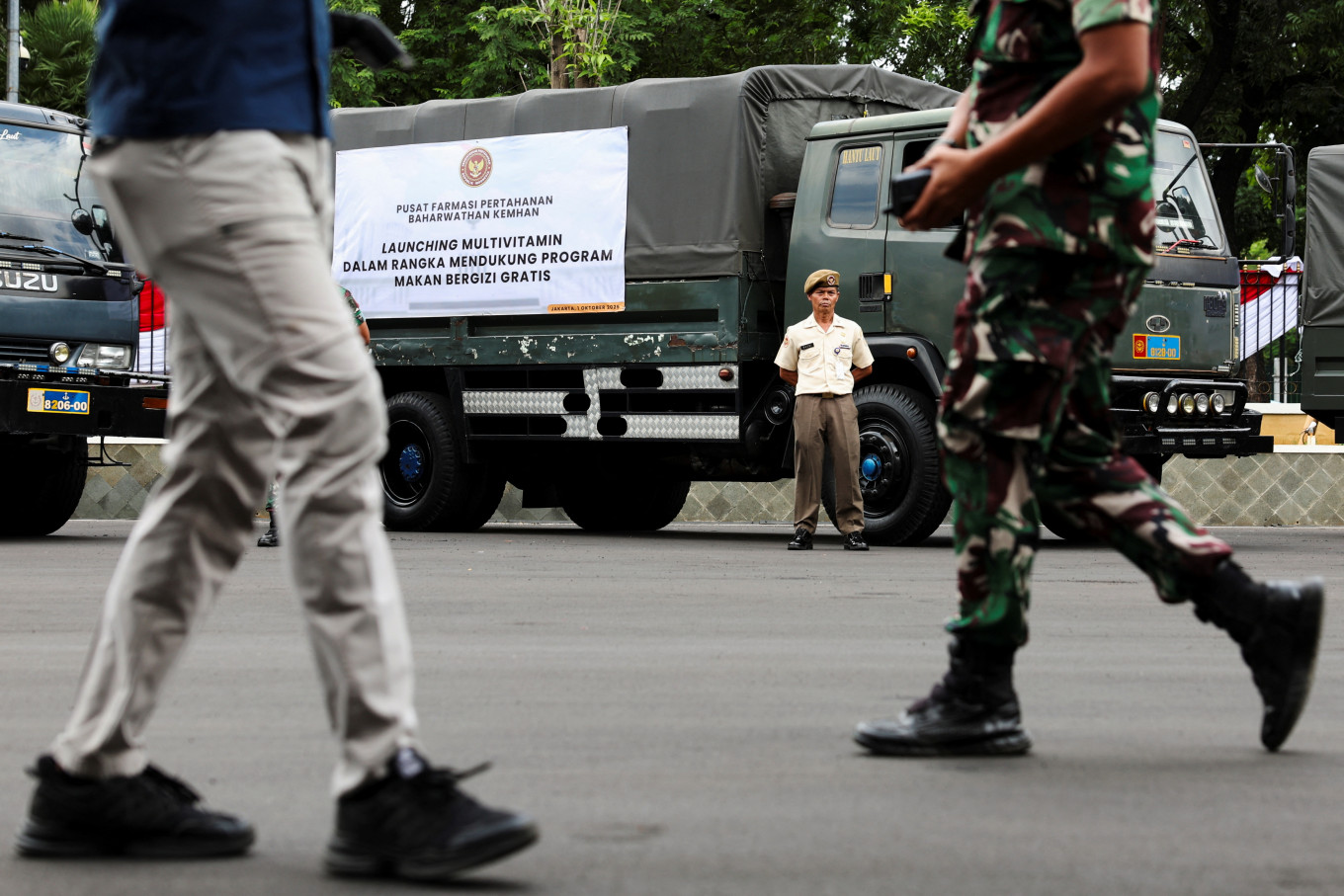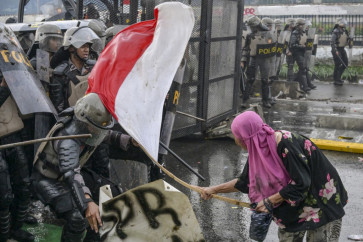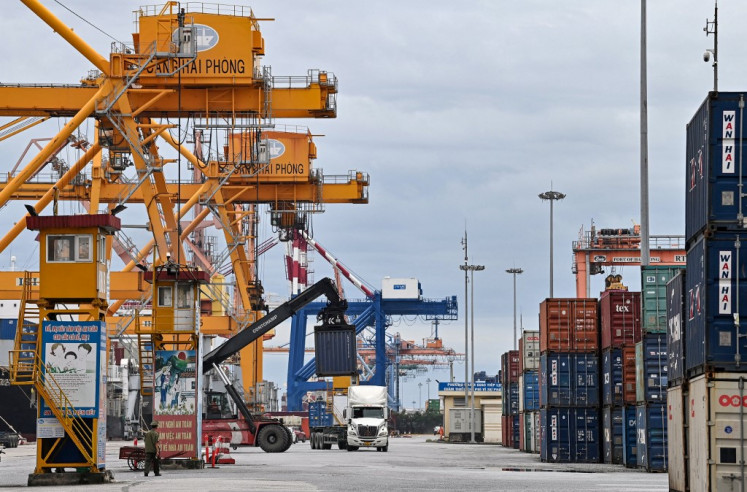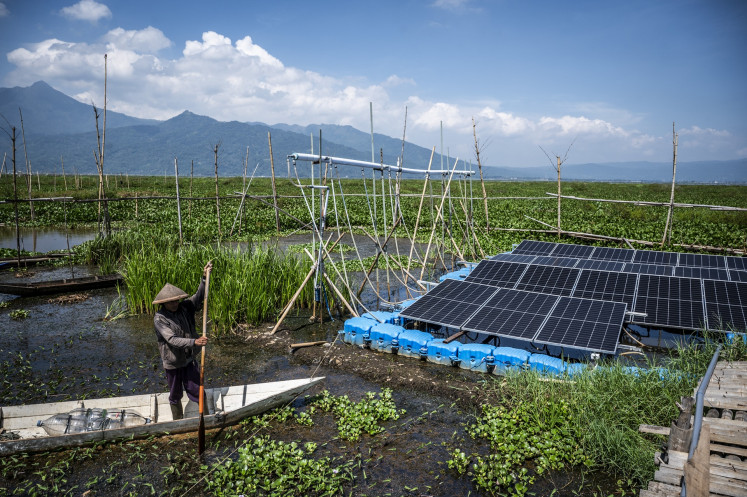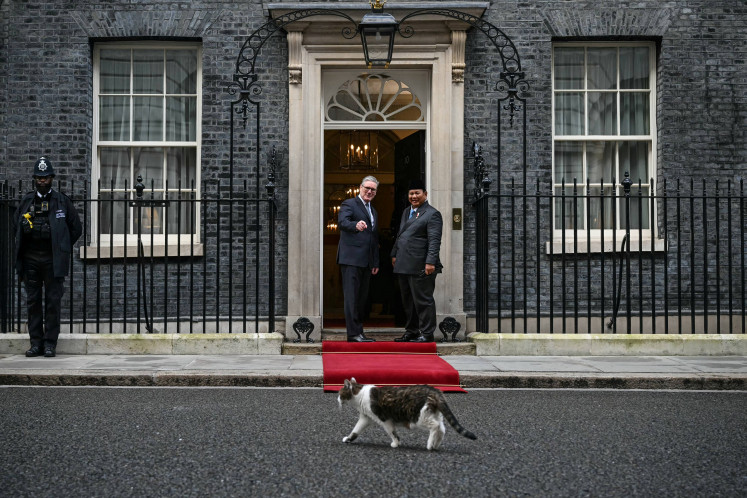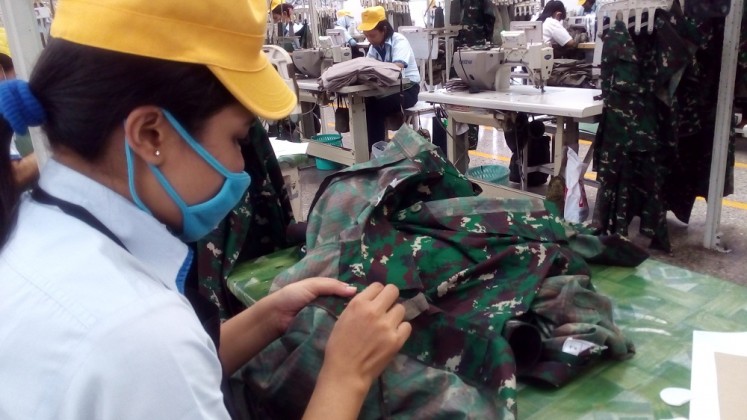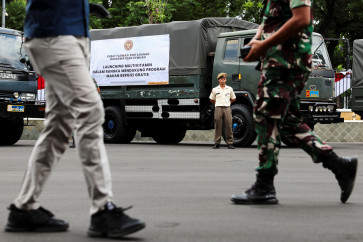Popular Reads
Top Results
Can't find what you're looking for?
View all search resultsPopular Reads
Top Results
Can't find what you're looking for?
View all search resultsPrabowo's securitization regime, how far will it go?
The provisions regarding military operations other than war are ambiguous, with implementation regulated by government or presidential regulations.
Change text size
Gift Premium Articles
to Anyone
S
ince assuming power on Oct. 20 of last year, President Prabowo Subianto has accelerated the concept of "securitization", actively expanding military and defense-sector influence across civilian governance, a direct threat to Indonesian democracy.
Traditionally, in military terms, this concept is understood as the state's capacity to defend itself against external survival threats, as developed by Barry Buzan and Ole Waever. However, a new generation of scholars is expanding it to encompass a much wider range of issues, including human rights, poverty and environmental concerns.
The concept of securitization is a framework that explains how non-security issues can be perceived as existential threats by "securitizing actors", such as governments or political leaders. Within this framework, "speech acts" are crucial in constructing phenomena as immediate threats, thereby legitimizing emergency measures.
According to philosopher John Langshaw Austin, utterances do not merely describe the world; they can also change it. When this speech act is received by the audience, the public, it legitimizes the use of extraordinary measures that operate outside normal political processes.
By linking the speech act to Prabowo's leadership, we observe a linguistic style, frequently employing phrases such as "for the people" and "pursue corrupt individuals to Antarctica". These slogans justify the extraordinary policies adopted in creating legal abnormalities.
Securitization in law enforcement is evidenced in Presidential Regulation No. 66/2025, which provides a legal umbrella for the Indonesian Military (TNI) to secure the Attorney General's Office (AGO) and its regional offices. The military's dominance in this legal realm can undermine the constitutional system. The assumption that Prabowo is exercising this discretion due to dissatisfaction with police performance may be temporarily justifiable, but it is entirely divergent from the ideal; instead, the President should focus on the internal restructuring of the police institution.
Moreover, TNI involvement must be time-bound, as it contradicts Article 7 of the new TNI Law, which excludes securing the AGO from the military's 16 primary duties. TNI involvement in law enforcement will ultimately reinforce public perception that the relationship between the TNI and the police is far from harmonious.

